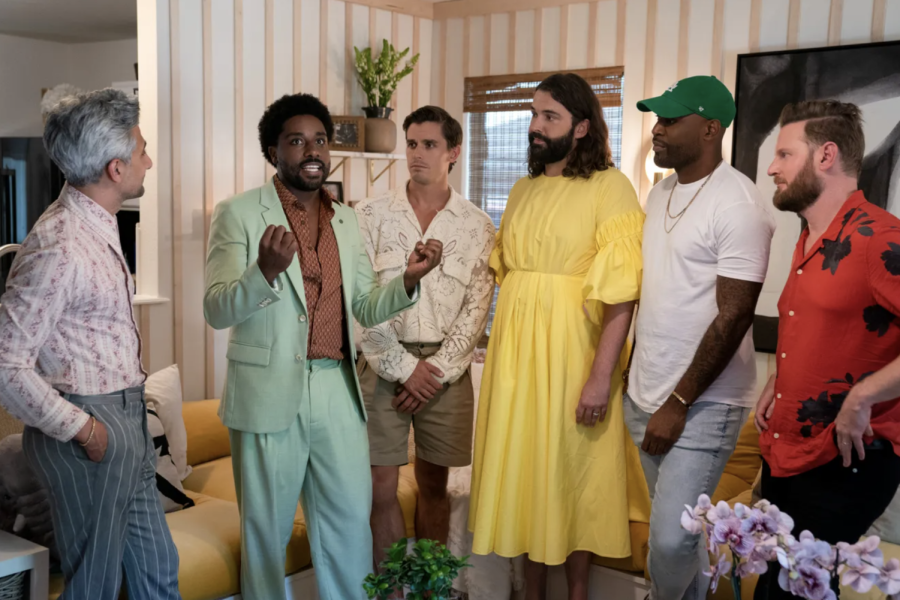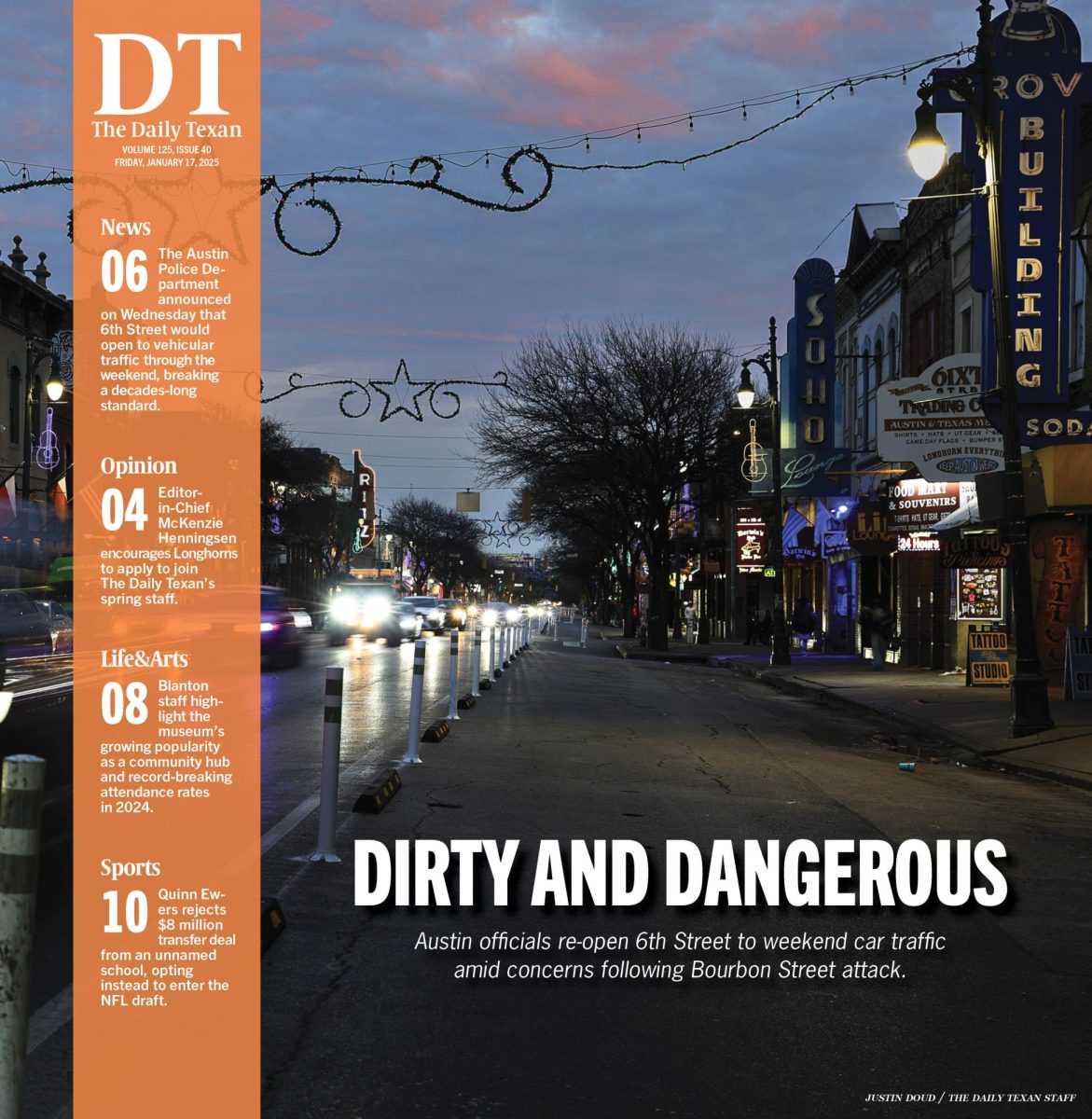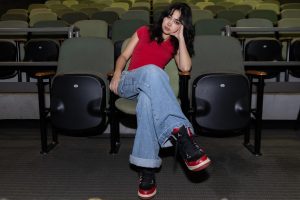Austin hip hop artist BlackLight talks opening for Katy Perry, Queer Eye experience, future aspirations
May 2, 2022
From performing on the same lineup as Katy Perry and Dua Lipa to opening himself up to thousands on the latest season of Queer Eye, Reggie DeVore, known as BlackLight, continues to shine a light on Austin’s Hip Hop scene after nearly a decade in the industry.
Whenever he graces the Austin or international stage, DeVore always brings his high-energy and empowering performance to his venue. BlackLight’s next performance will be at Kick Butt Coffee on Airport Boulevard on May 21.
The Daily Texan sat down with DeVore to discuss his journey as a musician, his biggest performances and his appearance on Queer Eye.
Daily Texan: Obviously, you are very well known for your abilities as a performer and rapper, but you are also a talented audio engineer and producer. Could you talk to me about how that process influences your own music?
Reggie DeVore: I’m a hip hop artist, and my albums are very hip hop. But I have a punk rock feel during my stage performance. I’ve produced for genres like pop, neo soul, R&B, punk rock, folk, metal and, of course, hip hop. Punk rock has influenced my live performance a lot.
DT: How was filming for Queer Eye?
RD: Filming days were so long, and we worked so hard to get all the shots we needed. It was especially hard with a 5-week-old baby and the lack of sleep that comes with that, but behind-the-scenes interactions and spending time with the film crew and producers were priceless.
DT: Did you see an immediate change after the season aired?
Within two weeks, I had over 30k followers. Two million people watched (my episode of Queer Eye). People worldwide have watched that show, and I’m getting messages every day like ‘Please don’t stop; please don’t give up.’ It’s like, that (support) was instant.
DT: Can you tell me about your experience opening-up for Katy Perry and Dua Lipa in India?
RD: Katy Perry f*cked up my f*cking soundcheck. We’d been at the stadium for seven hours now, and I was just like, ‘You know what, it’s fine. I’m an engineer. I’ll fix it in five seconds.’ She goes on stage, and then, I’m not allowed to go on stage anymore…
By the time my music came on and I started performing, I had made my set longer, and I didn’t do the songs that I wanted to do. It was all messed up, but it was all perfect. I was mad stressed out for not being able to do the sound checks. People were like, ‘You did great,’ but in the back of my head, I’m going over all the little things — I’m an artist. On the plane home, it hits me — I just performed for 60,000 people.
DT: You have been in the Austin hip hop scene for well over seven years now, and you obviously have seen the change in the scene, how do you feel about the state that Austin hip hop is in.
RD: Hip hop is historically overlooked in our city. As far as the serious festivals like ACL, seeing Zeale and Blackillac (being) able to take advantage of opportunities there makes me feel like hip hop is making headway. We won’t be able to tell until after things normalize after the pandemic. But, I’m excited for the Austin music scene in general because I’m down in the dirt looking at what’s happening, and I’ve seen these guys. … They’re great, and I’m excited to continue working with them.











